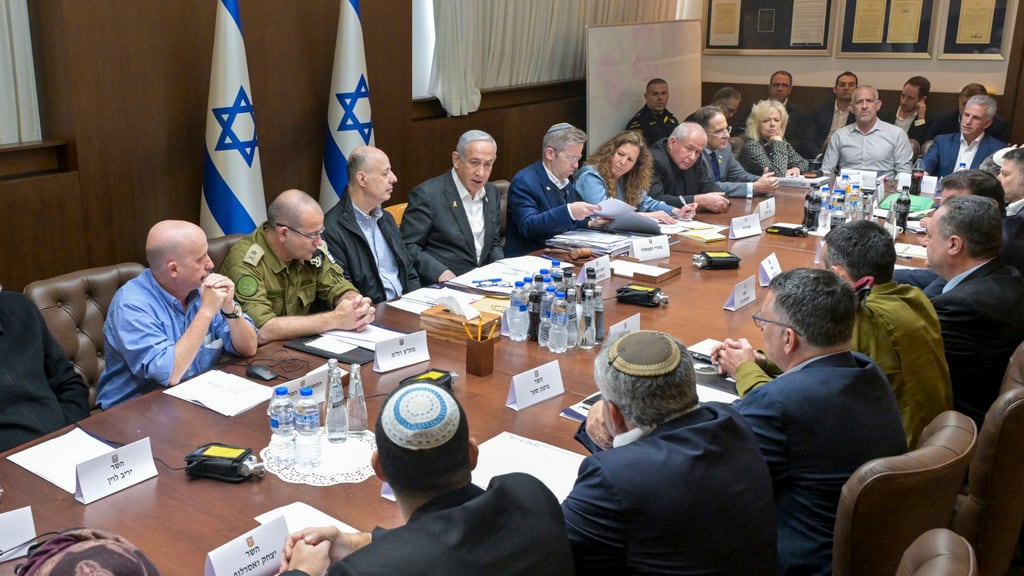JERUSALEM (AP) — The Israeli cabinet approved on Saturday an agreement for a ceasefire in Gaza that will pause the war with Hamas and allow for the release of dozens of hostages, bringing the parties closer to the end of their deadliest and most destructive confrontation to date.
The Israeli government announced its approval after 1 a.m. on Saturday, Jerusalem time, following an extended meeting of the full cabinet that went on long after the start of the Jewish Sabbath, reflecting the significance of the moment. According to Jewish law, the Israeli government typically suspends operations during the Sabbath, except in cases of life or death.
PUBLICIDAD
Qatar and United States mediators announced the ceasefire on Wednesday, but the agreement was on hold for over a day because Prime Minister Benjamin Netanyahu insisted that there were last-minute complications which he attributed to the Palestinian militia.
What are the details of the ceasefire?
The ceasefire, the second one achieved during the war, is expected to begin on Sunday and will include the release of 33 Israelis held captive in Gaza in the first phase, which will last six weeks.
Hundreds of Palestinian detainees in Israeli prisons will also be released, and the heavily devastated Gaza Strip should see an increase in the entry of humanitarian aid.
The Ministry of Justice of Israel published a list of 95 Palestinian prisoners who will be released in the first phase of the agreement and stated that the release will not begin before 4 p.m. on Sunday. All individuals on the list are young or women.
The Israeli Prison Service said it will transport Palestinian prisoners instead of the International Committee of the Red Cross, which handled the transport during the first ceasefire, to avoid "public expressions of joy."
Meanwhile, Netanyahu instructed a task force to prepare for receiving the captives returning from Gaza.
Trucks loaded with aid lined up on Friday on the Egyptian side of the Rafah border crossing into Gaza. An Egyptian official said that an Israeli delegation from the army and Israel's internal security agency arrived in Cairo on Friday to discuss the reopening of the crossing.
Israeli forces will also withdraw from many areas in Gaza during the first phase of the ceasefire, and hundreds of thousands of Palestinians will be able to return to what remains of their homes.
The Israeli army said that residents will not be allowed to return to areas where troops are still present or near the border between Israel and Gaza, and that any threat to Israeli forces "will be responded to forcefully."
The rest of the captives, including the male soldiers, will be released in a second phase that will be negotiated during the implementation of the first one.
Hamas has said it will not release the remaining captives without a lasting ceasefire and a complete withdrawal of Israel, while the Netanyahu government has vowed to continue fighting until it dismantles the Palestinian militia and maintains indefinite security control over the territory.
Possible crisis in Netanyahu's government?
On Thursday, Israel's hardline National Security Minister, Itamar Ben-Gvir, threatened to resign from the government if a ceasefire was approved. He reiterated this on Friday, writing on the social media platform X: "If the 'agreement' is approved, we will leave the government with a heavy heart."
Ben-Gvir’s resignation would not bring down the government or derail the ceasefire agreement, but it would destabilize the government at a delicate moment and could eventually lead to its collapse if other key allies of Netanyahu were to leave.
